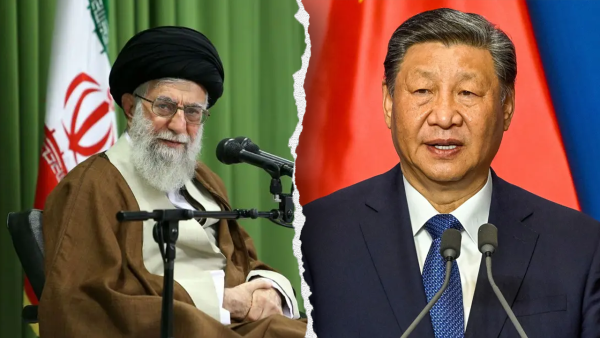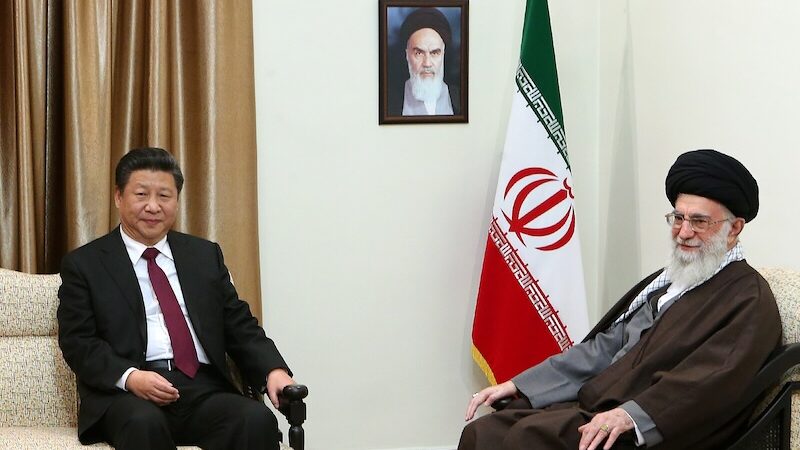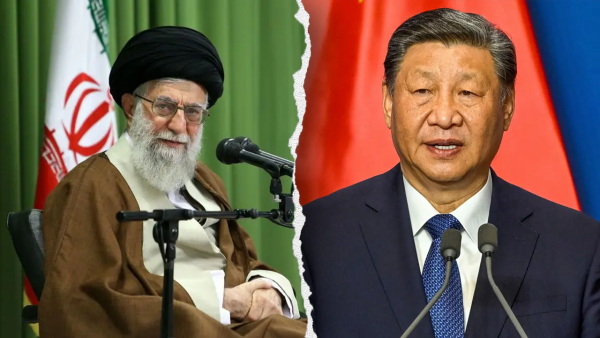Caught In The Crossfire: Examining Qatar's Position In The Israel-Iran Conflict

Welcome to your ultimate source for breaking news, trending updates, and in-depth stories from around the world. Whether it's politics, technology, entertainment, sports, or lifestyle, we bring you real-time updates that keep you informed and ahead of the curve.
Our team works tirelessly to ensure you never miss a moment. From the latest developments in global events to the most talked-about topics on social media, our news platform is designed to deliver accurate and timely information, all in one place.
Stay in the know and join thousands of readers who trust us for reliable, up-to-date content. Explore our expertly curated articles and dive deeper into the stories that matter to you. Visit Best Website now and be part of the conversation. Don't miss out on the headlines that shape our world!
Table of Contents
Caught in the Crossfire: Examining Qatar's Position in the Israel-Iran Conflict
The escalating tensions between Israel and Iran have cast a long shadow across the Middle East, drawing even seemingly neutral actors into the complex web of regional power dynamics. One such nation navigating this precarious situation is Qatar, a small but influential player with a unique and often delicate balancing act to maintain. Its position, straddling a line between maintaining strong ties with both Iran and Israel’s regional allies, makes it a fascinating case study in navigating the complexities of Middle Eastern geopolitics.
<h3>A Balancing Act Between Regional Rivals</h3>
Qatar's foreign policy has long been characterized by its pragmatic approach to regional power brokers. While maintaining strong economic ties with the West, including the United States, Qatar has also cultivated significant relationships with Iran, primarily fueled by shared gas fields and a mutual desire for regional stability (albeit defined differently by each nation). This close relationship with Iran, however, often puts Qatar at odds with some of its Gulf Cooperation Council (GCC) neighbors, particularly Saudi Arabia and the UAE, who view Iran with considerable suspicion.
This inherent tension is further complicated by Qatar's role as a mediator and facilitator of dialogue. Qatar's Al Jazeera media network, while controversial at times, plays a significant role in shaping regional narratives and influencing public opinion. Its diplomatic efforts, often working behind the scenes, have been instrumental in facilitating negotiations and conflict resolution in various Middle Eastern hotspots.
<h3>The Israeli Perspective: A Cautious Approach</h3>
While Qatar's relationship with Iran is well-documented, its interaction with Israel is less overt but equally significant. Despite the lack of formal diplomatic relations, Qatar has allowed the establishment of a Hamas office in Doha, a move that has drawn criticism from Israel. This seemingly contradictory stance highlights the complexities of Qatar's foreign policy: simultaneously attempting to maintain regional influence while navigating the sensitivities of its diverse relationships. Israel views Qatar's actions with a degree of caution, wary of its proximity to Iran and its support for Palestinian groups.
<h3>The Iranian Angle: A Strategic Partner</h3>
From Iran's perspective, Qatar's neutrality, or at least its refusal to openly align against Tehran, is viewed as a strategic advantage. The shared gas fields in the Persian Gulf represent a significant economic link, providing a crucial source of revenue for both nations. Furthermore, Qatar's willingness to engage in dialogue offers Iran a platform to articulate its perspective on regional issues, bypassing the often-hostile rhetoric emanating from other GCC states.
However, this relationship is not without its challenges. Even with its close ties, Qatar remains ultimately independent and is unlikely to fully embrace Iranian strategic goals at the expense of its own interests.
<h3>Looking Ahead: Navigating Uncertain Futures</h3>
As the Israel-Iran conflict continues to evolve, Qatar's role will likely become increasingly crucial. Its ability to maintain a delicate balance between competing interests will be tested, requiring a nuanced and adaptive foreign policy approach. The nation’s future hinges on its capacity for shrewd diplomacy and its willingness to navigate the treacherous currents of Middle Eastern politics. Its success or failure in this endeavor will have significant ramifications for regional stability and the broader global geopolitical landscape.
Keywords: Qatar, Iran, Israel, Middle East conflict, geopolitics, foreign policy, Hamas, GCC, Al Jazeera, regional stability, diplomacy, Persian Gulf.

Thank you for visiting our website, your trusted source for the latest updates and in-depth coverage on Caught In The Crossfire: Examining Qatar's Position In The Israel-Iran Conflict. We're committed to keeping you informed with timely and accurate information to meet your curiosity and needs.
If you have any questions, suggestions, or feedback, we'd love to hear from you. Your insights are valuable to us and help us improve to serve you better. Feel free to reach out through our contact page.
Don't forget to bookmark our website and check back regularly for the latest headlines and trending topics. See you next time, and thank you for being part of our growing community!
Featured Posts
-
 Former Assistants Testimony Could Be Crucial In Sean Diddy Combs Case
Jun 22, 2025
Former Assistants Testimony Could Be Crucial In Sean Diddy Combs Case
Jun 22, 2025 -
 Stanford Grads Fiancee Steals The Show With Breathtaking Dress
Jun 22, 2025
Stanford Grads Fiancee Steals The Show With Breathtaking Dress
Jun 22, 2025 -
 Sean Diddy Combs Faces Court Former Aides Account Heard
Jun 22, 2025
Sean Diddy Combs Faces Court Former Aides Account Heard
Jun 22, 2025 -
 Analysis Qatar Under Pressure Amidst Escalating Israel Iran Tensions
Jun 22, 2025
Analysis Qatar Under Pressure Amidst Escalating Israel Iran Tensions
Jun 22, 2025 -
 Wests Loss In Iran Conflict Chinas Response And The Implications
Jun 22, 2025
Wests Loss In Iran Conflict Chinas Response And The Implications
Jun 22, 2025
Latest Posts
-
 Chinas Gain How Americas Middle East Stumbles Benefit Beijing
Jun 22, 2025
Chinas Gain How Americas Middle East Stumbles Benefit Beijing
Jun 22, 2025 -
 Ben Felters New Life Milestone Cameron Brinks Proud Moment
Jun 22, 2025
Ben Felters New Life Milestone Cameron Brinks Proud Moment
Jun 22, 2025 -
 Assisted Dying Bill Clears Hurdle In Parliament Mps Approve Key Stage
Jun 22, 2025
Assisted Dying Bill Clears Hurdle In Parliament Mps Approve Key Stage
Jun 22, 2025 -
 Chinas Iran Strategy A Calculated Risk Or A Threat To Western Interests
Jun 22, 2025
Chinas Iran Strategy A Calculated Risk Or A Threat To Western Interests
Jun 22, 2025 -
 Lockheed Martin Stock Your Investment Gains Over The Past Two Decades
Jun 22, 2025
Lockheed Martin Stock Your Investment Gains Over The Past Two Decades
Jun 22, 2025
